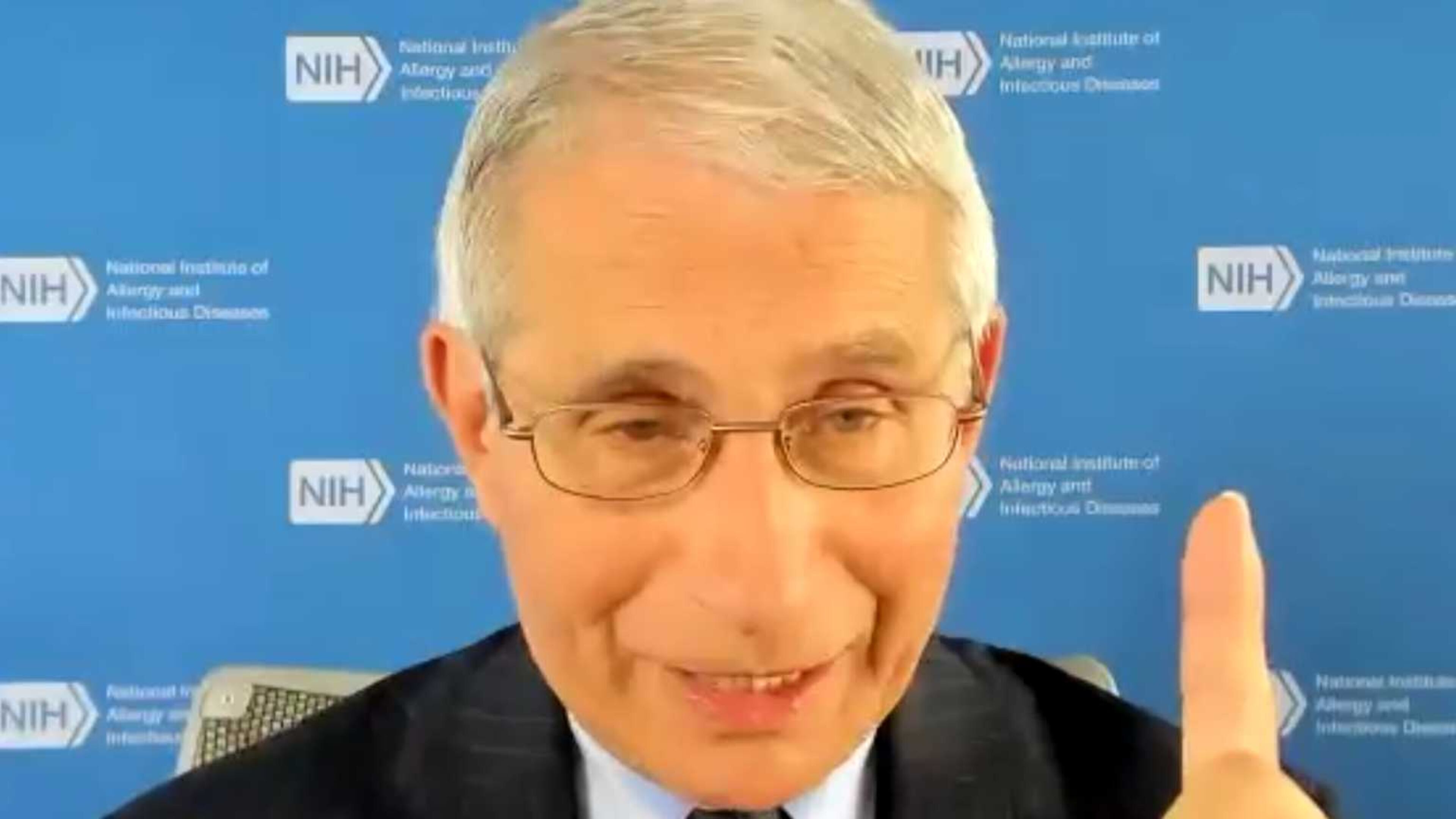Fauci to FDA: ‘I got your back’ on COVID-19 vaccine safety standards

The federal government’s top infectious disease official attempted to reassure the public Thursday that he’ll support safety standards set by federal officials for any COVID-19 vaccines and their work won’t be swayed by politics.
“If (U.S. Food and Drug Administration officials) come and say this is the way we should do it, I’ve got your back on that,” Dr. Anthony Fauci said in an online discussion organized by Emory University.

The remarks came in response to a question from Dr. Sanjay Gupta, an associate Emory University professor and CNN medical correspondent who moderated the discussion, if Fauci will resist efforts to release a vaccine that FDA officials believe is too risky. President Donald Trump said Wednesday that the White House could override the FDA if the agency released tougher standards for the authorization of a vaccine. The comments worried many scientists and medical experts.
Fauci, director of the National Institutes of Health National Institute of Allergy and Infectious Disease (NIAID), has been the federal government’s point person on COVID-19. Fauci has said a vaccine will likely not be ready before the end of the year and that there will not initially be enough doses for everyone.
Polls show deep skepticism about vaccine safety. Fauci said during Thursday’s 30-minute discussion he’s been disturbed by the reluctance many Americans have about being vaccinated, particularly among African Americans. While African Americans have been impacted by COVID-19 at a higher rate than other groups, many distrust federal scientific research, citing the Tuskegee study, which intentionally misled Black male participants about the purpose of the research and the treatment they received.
“That’s the reason why we have to be extra specially careful about the safety,” Fauci said.
Emory University is actively involved in vaccine treatment and research. It has been part of NIAID’s research consortium since 2007 and is participating with the agency in a closely watched study of a potential vaccine developed by Moderna, a Massachusetts-based biotechnology company. The critical Phase 3 of Moderna’s vaccine trial began in late July.
Dr. Carlos del Rio, executive associate dean of Emory University’s medical school, emphasized the importance of safety throughout each phase of clinical trials.
“In fact, you’re looking at safety more than efficacy,” del Rio said. “As an investigator, it’s our job to ensure the safety and the proper conduct of the study.”
Del Rio said research to determine vaccines are safe would continue after they’re approved by the federal government.
“Looking at safety never really ends,” he said.
The discussion also focused on ongoing COVID-19 mitigation efforts, such as testing.
Dr. Colleen Kraft, an associate professor in the Department of Medicine Division of Infectious Diseases at Emory University’s medical school, said the prospect of daily testing at home might happen if the pandemic continues for a long time.
“I think there’s going to be a middle ground where we can have rapid diagnostic testing so we can rule people out quickly to be able to do activities, return to school, return to work, and then we also need it obviously for health care settings,” Kraft said.
Gupta also asked Kraft about the possibility of convalescent plasma as a bridge to the vaccine. Convalescent plasma therapy uses blood from people who’ve recovered from an illness to help others recover. Hospitals have been transfusing it directly to sick COVID-19 patients. The treatment is limited not only by supply shortages but also because each person’s plasma has varying levels of antibodies and the transfusions require matching blood types.
Kraft previously worked with convalescent plasma during the Ebola outbreak, but thinks further study is necessary before developing trials around it.
“However, I think one of the things we’re seeing is that it’s a heterogeneous-type of a therapy. So while it is very low-resource and could be widely available, we’ve not really studied and characterized it to the degree to I think, really, is necessary to be able to determine whether or not we’re getting efficacy from it,” Kraft said.




